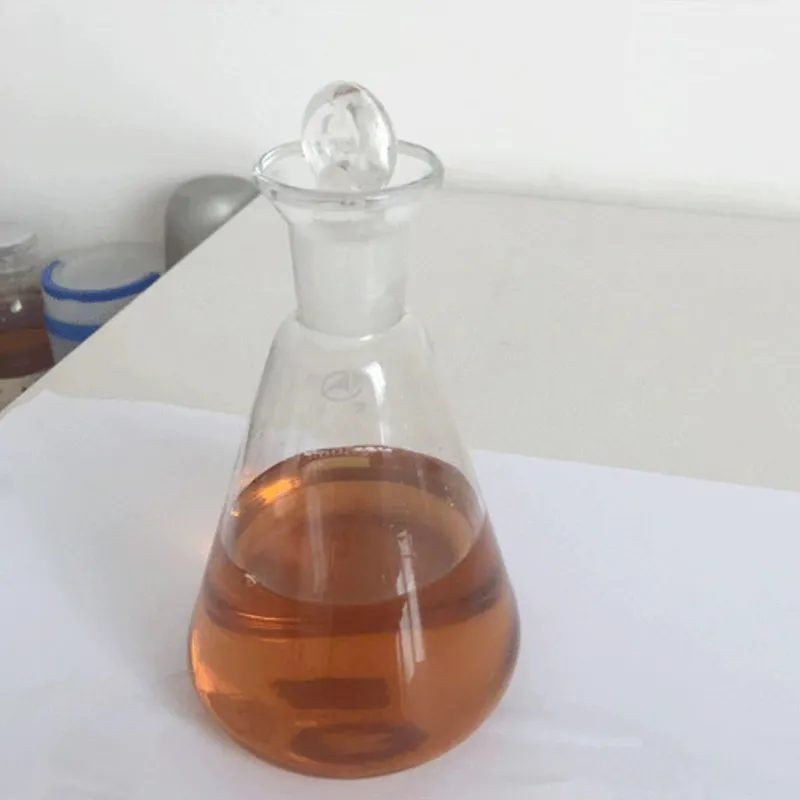
preservative 281
Understanding Preservative E281 Function, Uses, and Safety
Preservatives are vital ingredients used in food and pharmaceutical industries to prolong shelf life, maintain quality, and protect products from spoilage. One such preservative that has garnered attention is E281, chemically known as sodium propionate. This article explores the function, uses, and safety of E281, shedding light on its role in the food industry and beyond.
What is E281?
E281, or sodium propionate, is a salt derivative of propionic acid. It is commonly used as a preservative in various food products due to its antimicrobial properties, which help to inhibit the growth of mold and certain bacteria. E281 is particularly effective in products that are prone to spoilage, such as baked goods, cheese, and some dairy products.
In addition to its antibacterial properties, E281 serves as a dough conditioner, enhancing the texture and shelf life of baked goods. It is recognized for its ability to extend the freshness of bread, preventing mold formation that can lead to waste and financial loss for manufacturers and retailers.
Applications in Food Products
E281 finds its application predominantly in the baking industry. Breads and cakes, being high-moisture products, create an ideal environment for mold growth. By incorporating E281, bakers can enhance the longevity of their products while ensuring that they remain safe and tasty for consumers.
In cheese production, E281 is used to prevent spoilage and maintain flavor integrity. The addition of this preservative allows cheese manufacturers to distribute their products over longer distances without compromising on quality, which is crucial for maintaining food safety standards.
Moreover, E281 is often found in processed foods, contributing to the overall preservation of ingredients and ensuring that products reach consumers in optimal condition. Its versatility and efficacy have made it a preferred option for food scientists and manufacturers.
preservative 281

Safety and Regulatory Status
Safety is a primary concern when it comes to food additives, and E281 has undergone extensive evaluation by various health and safety authorities. According to the European Food Safety Authority (EFSA) and the U.S. Food and Drug Administration (FDA), E281 is generally recognized as safe when used within recommended limits. It is classified as a low-risk preservative with minimal adverse effects on health.
Despite its safety profile, some individuals may experience sensitivities or allergic reactions to sodium propionate, especially those with specific dietary restrictions or health concerns. As with any food additive, consumers are encouraged to read labels carefully, especially for products labeled as containing preservatives.
Consumer Awareness and Trends
In recent years, there has been a growing trend towards clean-label products, where consumers seek transparency and fewer additives in their food. This trend has led some manufacturers to explore alternative preservation methods or to reduce the use of preservatives like E281. However, the challenge persists in balancing food safety, freshness, and consumer demands.
Food scientists are continually researching natural alternatives and methods to preserve food without sacrificing safety. Nonetheless, E281 remains a fundamental tool in the arsenal of food preservatives, particularly in settings where effective microbial control is essential.
Conclusion
E281, or sodium propionate, plays a crucial role in the food industry's efforts to maintain product safety and quality. Its effectiveness as a preservative, particularly in baked goods and dairy products, makes it invaluable for manufacturers striving to meet consumer demands while minimizing waste. With a strong safety profile and regulatory backing, E281 continues to be a reliable choice for extending shelf life effectively. As the food landscape evolves, understanding such preservatives will be essential for both producers and consumers in ensuring a safe and nutritious food supply.
-
Pure Sodium Dichloroisocyanurate Dihydrate | Powerful DisinfectantNewsAug.29,2025
-
Industrial Chemicals: Quality & Purity for Every IndustryNewsAug.28,2025
-
Nitrile Rubber Honoring Strict Production StandardsNewsAug.22,2025
-
Aspartame Ingredients Honoring Food Safety ValuesNewsAug.22,2025
-
Fertilizer for Balanced Plant NutritionNewsAug.22,2025
-
Cyanide Gold Processing with High Purity AdditivesNewsAug.22,2025
-
Formic Acid in Textile Dyeing ApplicationsNewsAug.22,2025
Hebei Tenger Chemical Technology Co., Ltd. focuses on the chemical industry and is committed to the export service of chemical raw materials.
-

view more DiethanolisopropanolamineIn the ever-growing field of chemical solutions, diethanolisopropanolamine (DEIPA) stands out as a versatile and important compound. Due to its unique chemical structure and properties, DEIPA is of interest to various industries including construction, personal care, and agriculture. -

view more TriisopropanolamineTriisopropanolamine (TIPA) alkanol amine substance, is a kind of alcohol amine compound with amino and alcohol hydroxyl, and because of its molecules contains both amino and hydroxyl. -

view more Tetramethyl Thiuram DisulfideTetramethyl thiuram disulfide, also known as TMTD, is a white to light-yellow powder with a distinct sulfur-like odor. It is soluble in organic solvents such as benzene, acetone, and ethyl acetate, making it highly versatile for use in different formulations. TMTD is known for its excellent vulcanization acceleration properties, which makes it a key ingredient in the production of rubber products. Additionally, it acts as an effective fungicide and bactericide, making it valuable in agricultural applications. Its high purity and stability ensure consistent performance, making it a preferred choice for manufacturers across various industries.





